Water is not just a need of human life but an essential survival aspect of human life. Life on earth is unimaginable without water. It is the most essential need for agriculture, animals, and every living being on the planet. Water becomes an important aspect to look upon to live a healthy life. As per UNICEF, “A safe water supply is the backbone of a healthy economy.” Drinking water facilities has been a challenging task for a long time. Despite having a population of 1.3 billion, India has only 4% of the world's freshwater resources. Undersupply of tap water and lack of drinking water exacerbate the situation for large parts of the population. Access to safe drinking water has been a severe challenge for India, both in rural and urban areas, and lack of access has become a massive burden on the country's economy and public health. The water supply and sanitation in India have been a challenge since the 1950s, we are still facing the same challenges. Also, Water conservation, Reuse of water, Prevention of water Pollution etc. are the need of time for effective use of water. In the year 2019, the government of India launched the Jal Jeevan Mission with a motive to provide water supply/tap connection to every household and fulfill the gap between urban-rural areas. This mission is also attracted by the slogan of “Har Ghar Jal” which indicates the motive and strategy behind the Jal Jeevan Mission. This slogan indicates the strategy of the government to provide water to every single household in the form of a tap water connection. In the economic survey concluded in the year 2021, The Jal Jeevan Mission was stated as an appropriate strategy to address the rural-urban gap for the necessary water supply. The implementation of tapped water by IIMI - MPJNM has significantly improved various aspects of life in the community. Health issues among adult females have drastically reduced from 69% to 0%, and among girls from 65% to 5%. Women as they no longer need to walk long distances to collect water had more time for self and wealth creation activities. Education has seen a substantial boost, with overall school attendance rising from 40% to 96%, and girls' attendance from 39% to 90%, as children can now attend school regularly without the burden of fetching water. Income levels have also improved, with 85% of men reporting increased earnings post-intervention, compared to the previous 93% who believed their income was low due to time spent on water arrangements. Food security has seen remarkable progress, with 95% of the population now feeling secure, compared to the previous 98% who faced hunger issues. Community capacity and standard of living have significantly improved, with 95% of people feeling empowered to participate in village development and water management, and 100% reporting better hygiene and living conditions. Time and money savings have been notable, with an average of 1-2 hours and 500 meters of walking time saved daily, allowing more time for education, income generation, or rest. Additionally, families have saved ₹ 1,500 - ₹ 2,000 previously spent on treatments for water-borne diseases, and this money is now being used for vehicles, income generation, education, food, and health.

4th PLACE
Impactful Research Team of the Year Award
Jal Jeevan Mission
4th PLACE Impactful Research Team of the Year Award
Indian Institute of Management Indore Website: https://www.iimidr.ac.in, Indore -453556 , Madhya Pradesh,India - India
"Har Ghar Jal (Water to every household)"
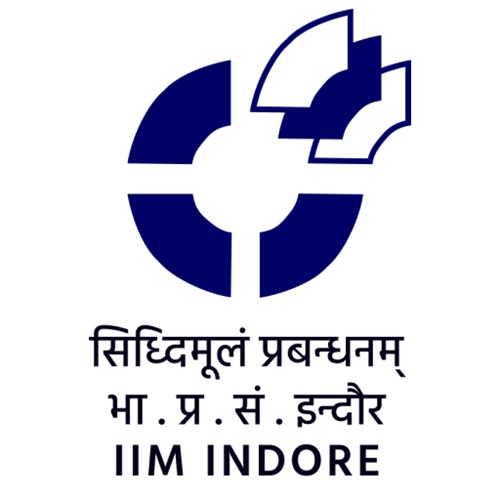
Summary
Key People

Prof. Prashant Salwan
Professor of Strategic management and Dean - Programmes
Indian Institute Of Management–Indore (IIM–Indore)
Acknowledgements
Dr Tejaswi S Naik , IAS , Managing Director JJM MP Government
Images
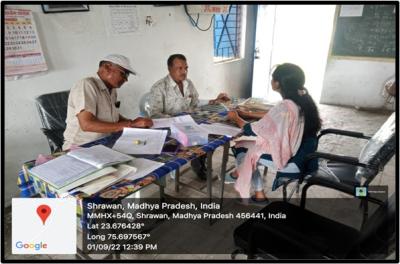
Meetings with the village panchayat office
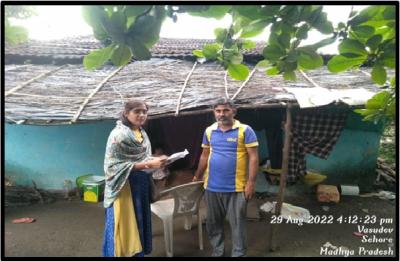
Collecting responses from villagers through questionnaires
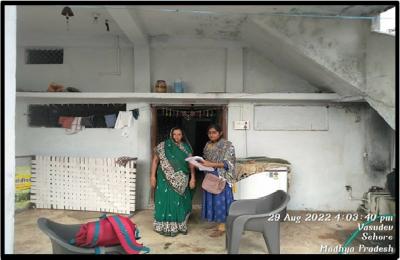
Collecting responses from villagers through questionnaires part 2
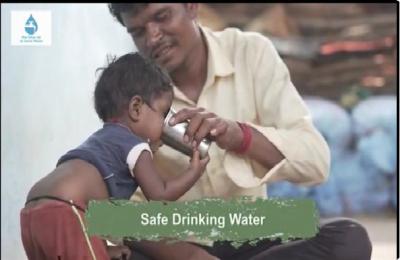
JJM Report Theme Page
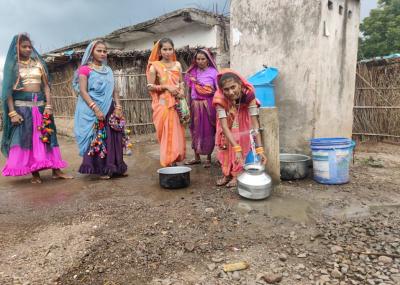
JJM Report Cover Page
IMPACT STORY
Impacting lifes
The implementation of the Jal Jeevan Mission (JJM) in Madhya Pradesh has brought transformative changes to the rural communities, particularly in areas such as health, education, income, and overall quality of life. The mission, which aims to ensure a clean tap water supply to every rural household, has significantly reduced health issues, especially among women and girls who previously had to travel long distances to fetch water. Before the project, 69% of adult females reported health problems due to carrying heavy water pots over long distances. This figure has now dropped to 0% post-tap water implementation. Similarly, health issues among girls, who often assisted their mothers in collecting water, decreased from 65% to just 5%.
The availability of tap water has also had a profound impact on education. School attendance overall improved from 40% to 96% as children no longer need to miss school to fetch water. For girls, attendance increased from 39% to 90%, enabling more of them to stay in school and focus on their studies. The project has also contributed to a rise in household incomes. Before the intervention, 93% of men believed their income was low due to the time spent arranging water. Now, 85% report an increase in income, attributing this to the time saved and redirected towards productive activities.
Food security has also seen a marked improvement. Previously, 98% of the population faced food insecurity; now, 95% feel their food problems are resolved, thanks to the reliable water supply that supports better agricultural practices and food preparation. The community's capacity for development and participation has grown, with 95% of residents feeling more involved in village activities, including women taking an active role in water management. Additionally, 100% of respondents reported improved hygiene and living standards, facilitated by the availability of water for cleaning, washing clothes, and using bathrooms. Time and money savings are other significant benefits. Families save an average of 1-2 hours and 500 meters of walking daily, allowing them to spend more time on education, income generation, or rest. The money previously spent on treatments for water-borne diseases, which ranged from Rs. 1500 to Rs. 2000, is now used for vehicles, income generation, education, food, and health.
Overall, the JJM has not only improved living conditions but has also empowered the community, especially women and children, creating a foundation for sustainable development and enhanced quality of life
LEARNINGS
Lessons learned
Learnings and Leadership Advice from MPJNM Project after deep research
• Learnings:
1. Stakeholder Engagement:
The success of the Jal Jeevan Mission (JJM) in Madhya Pradesh underscores the importance of effective stakeholder engagement. The involvement of a wide array of stakeholders, including central and state ministries, local politicians, water departments, gram panchayats, and community groups, has been crucial. Ensuring clear communication and active participation across all levels of stakeholders fosters ownership and facilitates smoother implementation of policies.
2. Policy Implementation Challenges:
Historical challenges in water supply policies, such as inadequate infrastructure and rapid population growth, highlight the necessity for continuous re-evaluation and adaptation of strategies. The JJM's iterative approach to policy implementation, incorporating lessons learned from past failures, has proven effective in addressing these challenges.
3. Impact on Community:
Access to tap water has had a transformative impact on health, education, food security, and economic productivity in the community. The reduction in time spent on water collection has significantly improved school attendance, particularly among girls, and has allowed families to focus on income-generating activities. This holistic improvement in living standards demonstrates the far-reaching benefits of such infrastructural projects.
4. Technological Integration:
The project has shown that integrating new technologies in water management can enhance efficiency and monitoring. However, it also highlights the need for training and capacity building among local stakeholders to effectively utilize these technologies.
5. Resource Management:
Effective water management requires not only the development of new infrastructure but also the maintenance and optimal use of existing resources. The project's success points to the importance of a well-thought-out resource management plan that includes both human and technological resources.
• Leadership Advice:
1. Foster Inclusive Participation:
Government should prioritize inclusive stakeholder engagement to ensure that all voices, especially those at the grassroots level, are heard. This participatory approach not only builds trust but also harnesses local knowledge and expertise, leading to more sustainable outcomes.
2. Adapt and Innovate:
Flexibility and innovation are key to overcoming implementation challenges. Government should encourage a culture of continuous improvement, learning from past experiences, and being open to new ideas and technologies that can enhance project outcomes.
3. Build Capacity:
Investing in capacity building for all stakeholders, particularly at the local level, is crucial. Providing training and resources empowers communities to take ownership of projects, leading to more effective and sustained implementation.
4. Clear Communication:
Effective communication strategies are essential for coordinating among various stakeholders and ensuring that everyone is aligned with the project's goals and processes. Government should focus on transparent and consistent communication channels to facilitate collaboration and problem-solving.
Stakeholders: Incentives and Interests
Central Government: JJM is focused on fulfilling a long-term dream of providing water to every citizen of India, enhancing the government's political image through sustained efforts.
State Government: JJM can improve the state government's image and demonstrate developmental efforts, benefiting state politicians.
Administrative Bodies: JJM showcases the potential of administrative bodies, promoting their profiles and demonstrating expertise in policymaking and strategy formulation.
NGOs/Trusts: These organizations are incentivized by societal benefits, assisting with policy understanding and contributing to overall community development.
Paani Samiti: Focuses on providing quality water and timely water testing to citizens.
Gram Panchayat: JJM helps demonstrate rural development, benefiting villagers and potentially influencing local elections.
Women Groups: Emphasizes women empowerment, skill development, and improving education opportunities, especially for girls.
Self Help Groups: Assists individuals in personal growth and productivity enhancement.
Citizens: Provides easy access to tap water, benefiting daily tasks and education, thereby reducing citizens' efforts.
FUTURE PLANS
What's coming?
Ensuring sustainable water availability remains crucial for the future development of Madhya Pradesh, a rapidly growing state. The Jal Jeevan Mission (JJM) has already brought revolutionary changes to the daily lives of the state's citizens, significantly improving living standards and day-to-day activities. By transcending barriers of caste and religion, JJM has empowered women, making them self-dependent and enhancing their quality of life. The mission's impact on education, particularly for girls, has been profound, as reducing the burden of water collection has allowed more girls to attend school regularly, carrying school bags instead of heavy water pots. This shift not only improves educational outcomes but also prepares the next generation to lead the state and nation towards greater success. Additionally, the JJM has provided various health benefits, enabling a healthier lifestyle for the people of Madhya Pradesh. Future plans will emphasize clean water supply to prevent water-borne diseases and promote overall well-being. The mission's focus on time-saving activities has increased productivity and interpersonal growth, especially for women.
Moving forward, further innovations will aim to save time and increase efficiency, allowing both men and women to contribute more effectively to their families and the economy. Sustaining and scaling the mission's impact will involve continuous monitoring and evaluation of water supply systems, infrastructure maintenance, and community engagement to ensure long-term sustainability.
By focusing on these areas, future plans aim to build on the successes of the JJM, ensuring that the people of Madhya Pradesh have reliable access to water, thereby enhancing their quality of life and driving the state towards a prosperous future.

